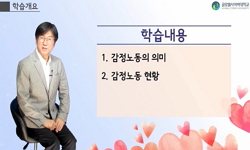In this essay, I critically examine the interpretation of the concept of qing (情) that appears in the fifth chapter (“The Sign of Virtue Complete”) of the Zhuangzi as emotions, and argue that the concept of qing in that ...
http://chineseinput.net/에서 pinyin(병음)방식으로 중국어를 변환할 수 있습니다.
변환된 중국어를 복사하여 사용하시면 됩니다.
- 中文 을 입력하시려면 zhongwen을 입력하시고 space를누르시면됩니다.
- 北京 을 입력하시려면 beijing을 입력하시고 space를 누르시면 됩니다.

장자(莊子) 「덕충부(德充符)」편의 정(情) 개념에 대한 새로운 해석 = A New Interpretation of the Concept of Qing (情) in the Fifth Chapter of the Zhuangzi
한글로보기부가정보
다국어 초록 (Multilingual Abstract)
In this essay, I critically examine the interpretation of the concept of qing (情) that appears in the fifth chapter (“The Sign of Virtue Complete”) of the Zhuangzi as emotions, and argue that the concept of qing in that chapter rather means the characteristic features of the human beings, primarily constituted by the judgments of right and wrong (shifei 是非) and the emotions of liking and disliking (haowu 好惡). The judgments of right and wrong literally refer to the acts of judging whether the thoughts, perspectives, or theories of one’s own or others’ are right or wrong, and such judgments are conceptually distinguished from the emotions such as liking, disliking, joy, anger, sadness, and pleasure. In Zhuangzi’s view, though, human beings are creatures characterized by the following features, just like the monkeys in the “three in the morning” anecdote from the second chapter (“Discussion on Making All Things Equal”) of the Zhuangzi: 1) misguided by inappropriate liking and disliking that fail to register the reality properly, human beings often make wrong judgments about and show inappropriate affective responses to various things; 2) based on self-consciousness and self-love, human beings tend to feel a strong attachment and hold fast to their own opinions, while cherishing enmity against their opponents; 3) self-conceited about their petty wisdom or limited virtues, human beings often look down upon others and feel jealous of those who excel themselves. In the chapter “The Sign of Virtue Complete,” Zhuangzi suggests the possibility of the existence of sages who have shed the negative characteristics of the human beings in response to Hui Shi’s 惠施 question, “How could there be human beings, by definition, who lack the characteristics of the human beings?” As Zhuangzi sees it, sages are liberated from the bonds of inappropriate liking and disliking and other emotions through their correct understanding of the reality, and they are also free from the concept of the self, which is the ultimate source of perverted self-love, self-conceitedness, and jealousy toward others.
국문 초록 (Abstract)
본고는 장자(莊子) 「덕충부(德充符)」편에 보이는 정(情) 개념을 감정으로 해석하는 입장의 문제점들을 살펴보고, 「덕충부」편의 정(情) 개념은 ‘감정’이라기보 다는 시비(是非) 판...
본고는 장자(莊子) 「덕충부(德充符)」편에 보이는 정(情) 개념을 감정으로 해석하는 입장의 문제점들을 살펴보고, 「덕충부」편의 정(情) 개념은 ‘감정’이라기보 다는 시비(是非) 판단과 호오(好惡)의 감정을 핵심 내용으로 하는 인간의 ‘특질’로 보는 것이 더 적절하다는 점을 주장한다. 시비 판단은 말 그대로 자신 또는 다른 이의 생각이나 관점, 이론 등이 옳은지 그른지를 판단하는 것으로, 호오나 희로애 락과 같은 감정들과는 개념적으로 구별된다. 그러나 장자가 바라본 인간은 「제물론 (齊物論)」편의 조삼모사 우화에서 묘사되는 원숭이들과 마찬가지로 사태의 진상을 반영하지 못하는 부적절한 호오를 바탕으로 그릇된 판단과 정서적 반응을 보이는 존재이며, 또 자의식과 자기애를 바탕으로 자신의 의견에 애착과 고집을 형성하고 다른 의견을 지닌 상대에게는 반감을 품는, 그리고 나아가 자신의 작은 지혜나 덕 행에 자만하여 남들을 멸시하고 자신보다 뛰어난 이에게는 시기와 질투를 일삼는 존재이다. 「덕충부」편에서 장자는 ‘인간의 특질을 결여한 인간이 있을 수 있는가’라 는 혜시의 비판에 대해, 인간의 부정적인 ‘특질’을 탈각한 성인(聖人)의 가능성을 제시한다. 장자의 이상적 인간은 사태에 대한 올바른 이해를 통해 부적절한 호오 및 그로부터 파생되는 다른 감정들로부터 해방된 자이며, 또 왜곡된 자기애와 자만 심, 남들에 대한 시기와 질투 등의 궁극적 뿌리인 자아 관념에서도 벗어난 자이다.
참고문헌 (Reference)
1 孫希旦, "禮記集解" 中華書局 1995
2 陳奇猷, "呂氏春秋校釋" 學林出版社 1984
3 김명석, "제자백가의 다양한 철학흐름" 사회평론 2009
4 이강수, "장자 I" 길 2005
5 王博, "왕보의 장자강의" 바다출판사 2021
6 박소정, "악론(樂論)을 통해 본 장자(莊子)의 예술철학" 연세대학교 2001
7 김형중, "도가적 감정 이해의 전형(典型) - 장자(莊子)의 ‘성인무정(聖人無情)’ 논의를 중심으로 -" 한국동양철학회 (42) : 79-117, 2014
8 안병주, "譯註 莊子 1" 전통문화연구회 2001
9 郭慶藩, "莊子集釋" 中華書局 1961
10 劉武, "莊子集解內篇補正" 中華書局 2012
1 孫希旦, "禮記集解" 中華書局 1995
2 陳奇猷, "呂氏春秋校釋" 學林出版社 1984
3 김명석, "제자백가의 다양한 철학흐름" 사회평론 2009
4 이강수, "장자 I" 길 2005
5 王博, "왕보의 장자강의" 바다출판사 2021
6 박소정, "악론(樂論)을 통해 본 장자(莊子)의 예술철학" 연세대학교 2001
7 김형중, "도가적 감정 이해의 전형(典型) - 장자(莊子)의 ‘성인무정(聖人無情)’ 논의를 중심으로 -" 한국동양철학회 (42) : 79-117, 2014
8 안병주, "譯註 莊子 1" 전통문화연구회 2001
9 郭慶藩, "莊子集釋" 中華書局 1961
10 劉武, "莊子集解內篇補正" 中華書局 2012
11 王先謙, "莊子集解" 中華書局 2012
12 王叔岷, "莊子校詮" 臺灣商務印書館 1994
13 李滌生, "荀子集釋" 學生書局 1979
14 陳鼓應, "老莊新論" 소나무 2013
15 何寧, "淮南子集釋" 中華書局 1998
16 孫詒讓, "墨子閒詁" 中華書局 2001
17 徐元誥, "國語集解" 中華書局 2002
18 김명석, "『논어(論語)』의 정(情) 개념을 어떻게 이해할 것인가" 한국동양철학회 (29) : 147-171, 2008
19 Chong, K., "Zhuangzi’s Critique of the Confucians: Blinded by the Human" State University of New York Press 2016
20 Mair, V., "Wandering on the Way: Early Taoist Tales and Parables of Chuang Tzu" The University of Hawai’i Press 1994
21 Oh, S., "Two Levels of Emotion and Well-Being in the Zhuangzi" 20 (20): 589-611, 2021
22 Watson, B, "The Complete Works of Chuang Tzu" Columbia University Press 1968
23 Olberding, A., "Sorrow and the Sage: Grief in the Zhuangzi" 6 (6): 339-359, 2007
24 Bruya, B., "Qing 情 and Emotion in Early Chinese Thought" 10 (10): 151-176, 2001
25 Shun, K, "Mencius and Early Chinese Thought" Stanford University Press 1997
26 Graham, A., "Essays on the Moral Philosophy of Mengzi" Hackett 2002
27 Kjellberg, P., "Essays on Skepticism, Relativism, and Ethics in the Zhuangzi" State University of New York Press 1996
28 Machek, D., "Emotions that Do Not Move’: Zhuangzi and Stoics on Self-Emerging Feelings" 14 (14): 521-544, 2015
29 Fraser, C., "Emotion and Agency in Zhuāngzǐ" 21 (21): 97-121, 2011
30 Fung, Y., "Chuang-Tzu: A New Selected Translation with an Exposition of the Philosophy of Kuo Hsiang" Springer 2016
31 Allinson, R., "Chuang-Tzu for Spiritual Transformation: An Analysis of the Inner Chapters" State University of New York Press 1989
동일학술지(권/호) 다른 논문
-
가다머에서 놀이로서의 예술과 반복- 하이데거와 들뢰즈의 반복 개념과 비교 -
- 서강대학교 철학연구소
- 서동욱
- 2022
- KCI등재
-
- 서강대학교 철학연구소
- 주재형
- 2022
- KCI등재
-
- 서강대학교 철학연구소
- 이철우
- 2022
- KCI등재
-
- 서강대학교 철학연구소
- 이재복
- 2022
- KCI등재
분석정보
인용정보 인용지수 설명보기
학술지 이력
| 연월일 | 이력구분 | 이력상세 | 등재구분 |
|---|---|---|---|
| 2028 | 평가예정 | 재인증평가 신청대상 (재인증) | |
| 2022-01-01 | 평가 | 등재학술지 유지 (재인증) |  |
| 2019-01-01 | 평가 | 등재학술지 선정 (계속평가) |  |
| 2018-12-01 | 평가 | 등재후보로 하락 (계속평가) |  |
| 2015-01-01 | 평가 | 등재학술지 유지 (등재유지) |  |
| 2013-11-20 | 학술지명변경 | 외국어명 : 미등록 -> Sogang Journal of Philosophy |  |
| 2011-01-01 | 평가 | 등재학술지 선정 (등재후보2차) |  |
| 2010-01-01 | 평가 | 등재후보 1차 PASS (등재후보1차) |  |
| 2008-01-01 | 평가 | 등재후보학술지 선정 (신규평가) |  |
학술지 인용정보
| 기준연도 | WOS-KCI 통합IF(2년) | KCIF(2년) | KCIF(3년) |
|---|---|---|---|
| 2016 | 0.69 | 0.69 | 0.6 |
| KCIF(4년) | KCIF(5년) | 중심성지수(3년) | 즉시성지수 |
| 0.56 | 0.51 | 1.274 | 0.32 |





 KCI
KCI 스콜라
스콜라






